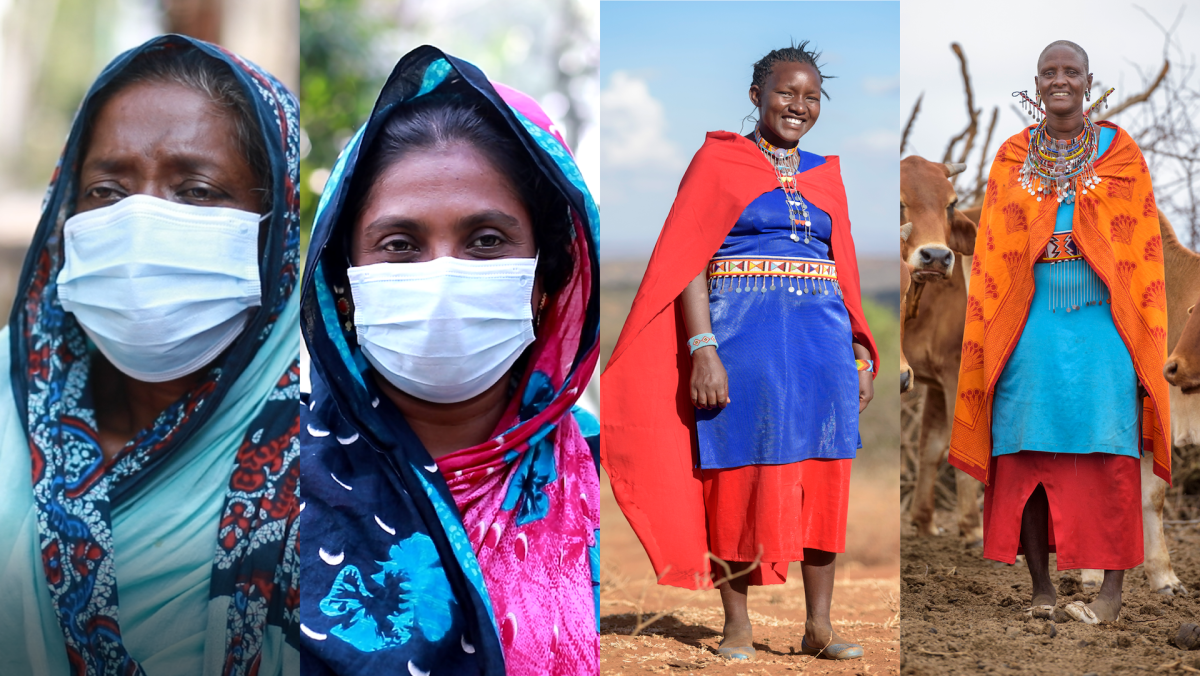Female community leaders from Kenya and Bangladesh are fighting the consequences of the climate crisis
The effects of climate change are felt in Kenya and Bangladesh. Drought and floods as a result of climate change impact access to basic necessities, such as water and toilets. Climate change disproportionately impacts recovering territories and marginalised groups. 2.3 billion people live in water-stressed countries, where the climate crisis continues to perpetually hinder access to safe water.

'Snakes are eating at our houses due to waterlogging. We are getting skin disease. Cold, cough, and fever too. Ten to twelve years ago we did not have this problem. This problem is due to climate change.'
Extreme drought causes hunger threats in Kenya
In the Kijiado County in Kenya, the effects of climate change have led to less rain and a generally unpredictable rainfall. People in the county used to rely on rivers to access water, but due to the extreme drought resulting from the climate crisis, the rivers have dried up.
And due to the decreased and unpredictable rainfall, residents of the Kijiado County struggle to grow maize and beans – which are the main ingredients that feed over 85% of Kenyan households.
Yet while some areas struggle with extreme drought, others suffer from floods and cyclones
Which is the case in the Satkhira District in Bangladesh, which is inundated for about seven months of the year due to floods and cyclones. The climate crisis has made the district unsuitable for living with families. Members of the county have been suffering from waterlogging for over 10 year, with no prospects on how to solve the problem. And as a result people can’t leave their houses, children can’t go to school, people have to travel long distances to access safe water, and toilets are damaged.
While women are the most vulnerable to the climate crisis, they also play an important role in solutions for climate change
Climate change disproportionally affects the world’s poorest and the least resourceful to adapt. But especially women and girls are unduly affected by climate change. Worldwide women and girls spend an estimated 200 million hours - daily - fetching water and due to the climate crisis, they will spend even more time doing so. Which increasingly exposes women and girls to attacks from men, and they miss out on education and work.
Neighbours Initiative Alliance (NIA) Neighbours Initiative Alliance (NIA) introduced the pastoralist community in the Kijiado County with new technology to harvest water and to combat the climate crisis. For instance, by creating a sand dam, which serves as a barrier around the rivers to hold water that as a result penetrates in the ground, which can subsequently be fetched using the handpump.
'We as women play an important role in solutions for climate change because the men in this region do a lot of sand harvesting, while we as women try to protect the river and try to stop the men from harvesting this sand.'
Covid-19 leaves people even more vulnerable to waterlogging
In the Satkhira District in Bangladesh our local partner Uttaran calls on to world leaders to work together to solve the climate crisis. It is a sad reality that while the world’s most vulnerable countries have contributed the least to climate change, they are the most at risk of its negative effects and least equipped to withstand and adapt to it. On top of that the Covid-19 crisis has led to people losing their jobs, which leaves them even more vulnerable to waterlogging, skin disease, vermin and more.



